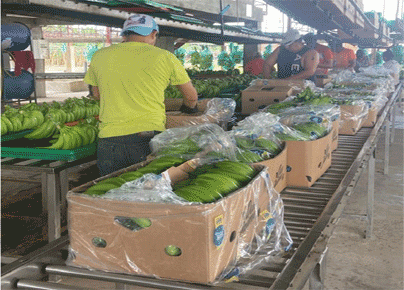Ecuador Aims to Become the Leading Banana Supplier of South Corea
2023-10-20

Following the signing of the trade agreement between Ecuador and South Korea, the banana sector has high expectations. They expect to increase exports to that country fivefold, even going from being the fourth banana supplier to the first, which is now the Philippines.
The fact is that the 30% tariff paid for the entry of the fruit to South Korea will drop 6% each year to reach 0% within five years once the Strategic Economic Cooperation Agreement (SECA) comes into force, which was signed on October 10 by the Foreign Trade Ministers of Ecuador, Daniel Legarda, and South Korea, Bang Moon Kyu, in Seoul, as a prelude to the full ratification of the trade agreement.
Ecuador will start exporting mangoes to South Korea, and sanitary protocols and commercial agreements are ready.
According to Legarda, Ecuador could export around USD 100 million in non-oil products to the Asian country, but with the agreement, it could be “much more”.
South Korea is a country that imports more or less 320,000 tons of bananas annually. The Philippines, by far, is the largest banana supplier.
Ecuador represents more or less 4.7% of all banana imports from South Korea. Still, one of the limitations for not exporting more bananas is the high tariff currently paid by the fruit, which is 30%, which is not paid, for example, by Colombia, which already has a trade agreement with the Asian country.
The executive director of the Association of Banana Exporters of Ecuador, José Antonio Hidalgo, who accompanied the Ecuadorian delegation to the pre-signing, said that they expect to triple banana exports.
"For us as a banana sector, Korea represents a market of 51 million inhabitants, being able to sign this trade agreement and reduce the tariff burden that today is 30% would mean that in the future we can double or even triple our position in a market that appreciates quality bananas and with quality efforts. It is to recover the volumes we had five years ago, to be able to generate more employment and to have an expectation of continuing to grow in Asian markets," says Hidalgo.









